July 18 stands as one of history’s most eventful days, witnessing the rise and fall of empires, groundbreaking discoveries, and moments that shaped our modern world across centuries of human achievement.
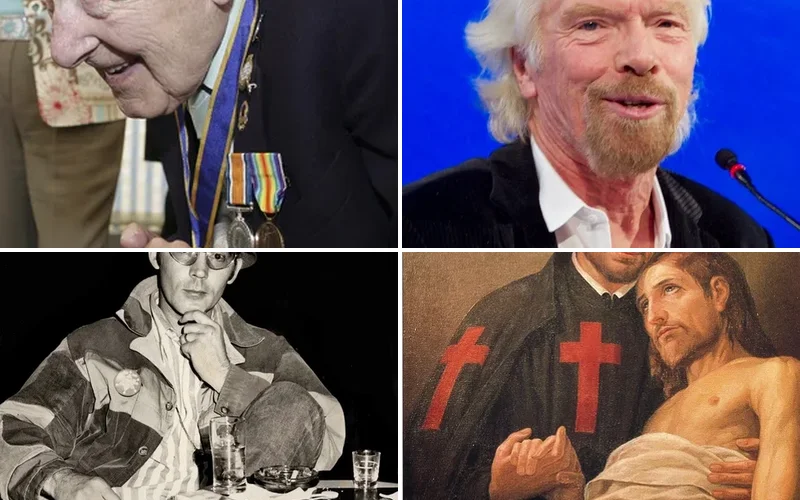
Politics and Government Events on July 18
1944 – Japanese Prime Minister Hideki Tōjō Resigns
World War II setbacks forced Japanese Prime Minister Hideki Tōjō to resign from his position on this date. The mounting military defeats across the Pacific theater had severely undermined his leadership credibility.
His resignation marked a critical turning point in Japan’s wartime government structure. The political upheaval reflected the nation’s deteriorating military position and growing internal pressure for change.
1994 – Rwandan Genocide Ends as RPF Takes Control

The Rwandan Patriotic Front captured Gisenyi and northwestern Rwanda, forcing the interim government into exile in Zaire. This decisive military victory brought an end to the devastating genocide that had claimed hundreds of thousands of lives.
The RPF’s control over the region marked the beginning of Rwanda’s long journey toward reconciliation and rebuilding. International observers recognized this moment as the definitive end of one of history’s most horrific genocides.
2013 – Detroit Files for Largest Municipal Bankruptcy in U.S. History
The city of Detroit filed for bankruptcy protection with debts reaching $20 billion, creating the largest municipal bankruptcy case in American history. Decades of economic decline and population loss had left the city unable to meet its financial obligations.
The bankruptcy filing shocked the nation and highlighted the challenges facing America’s rust belt cities. Detroit’s collapse became a symbol of urban decline and the need for comprehensive municipal reform.
1966 – Hough Riots Erupt in Cleveland

A racially charged incident in a Cleveland bar sparked six days of intense rioting in the Hough neighborhood. The violence required deployment of 1,700 Ohio National Guard troops to restore order to the community.
The riots reflected deep-seated racial tensions and economic inequalities plaguing American cities during the civil rights era. The Hough riots became part of the broader pattern of urban unrest that characterized the turbulent 1960s.
Military and Naval History on July 18
1914 – U.S. Army Aviation Section Established
The U.S. Congress officially created the Aviation Section of the Signal Corps, giving aircraft their first formal status within the American military. This groundbreaking decision recognized aviation’s growing importance in modern warfare.
The new aviation section would prove instrumental in developing American air power capabilities. This organizational milestone laid the foundation for what would eventually become the world’s most powerful air force.
1942 – Messerschmitt Me 262 Jet Aircraft First Flight
German engineers successfully test-flew the revolutionary Messerschmitt Me 262 using its jet engines for the first time. This technological breakthrough marked humanity’s entry into the jet age of aviation.
The Me 262’s successful flight demonstrated Germany’s advanced aeronautical engineering capabilities during wartime. Although introduced too late to change the war’s outcome, this aircraft revolutionized future aviation development worldwide.
1942 – Beisfjord Massacre in Norway
Fifteen Norwegian paramilitary guards collaborated with SS members to execute 288 political prisoners from Yugoslavia in the Beisfjord massacre. This brutal wartime atrocity demonstrated the extent of Nazi collaboration in occupied territories.
The massacre represented one of the darkest chapters in Norwegian wartime history. The collaboration between local guards and Nazi forces highlighted the complex moral compromises faced during occupation.
1996 – Battle of Mullaitivu in Sri Lanka
The Liberation Tigers of Tamil Eelam launched a devastating attack on the Sri Lankan Army’s Mullaitivu base, killing over 1,200 soldiers. This military victory marked one of the LTTE’s most significant battlefield successes.
The battle demonstrated the Tamil Tigers’ sophisticated military capabilities and strategic planning. The massive casualty toll shocked the nation and intensified the already brutal civil war.
Science and Discovery Milestones on July 18
1966 – Gemini 10 Space Mission Launches
NASA launched Gemini 10 from Cape Kennedy on an ambitious 70-hour mission that included docking with an orbiting Agena target vehicle. This complex space operation advanced America’s capabilities for future lunar missions.
The successful docking maneuvers demonstrated critical techniques required for the upcoming Apollo moon program. Gemini 10’s achievements brought the United States significantly closer to achieving President Kennedy’s lunar landing goal.
1992 – First Photograph Posted to World Wide Web

A picture of the band Les Horribles Cernettes was captured on this date, becoming the first photograph ever posted to the World Wide Web. This seemingly simple moment marked the beginning of the internet’s visual transformation.
The photograph’s upload demonstrated the web’s potential for sharing multimedia content beyond text. This milestone helped establish the foundation for today’s image-rich digital communication landscape.
1968 – Intel Corporation Founded
Semiconductor pioneers established Intel Corporation in Mountain View, California, launching what would become the world’s largest microprocessor manufacturer. The company’s founding marked a pivotal moment in the development of modern computing technology.
Intel’s establishment coincided with the beginning of the personal computer revolution. The company’s innovations would eventually power billions of devices and fundamentally transform global communication and commerce.
Cultural and Arts Events on July 18
1925 – Adolf Hitler Publishes Mein Kampf
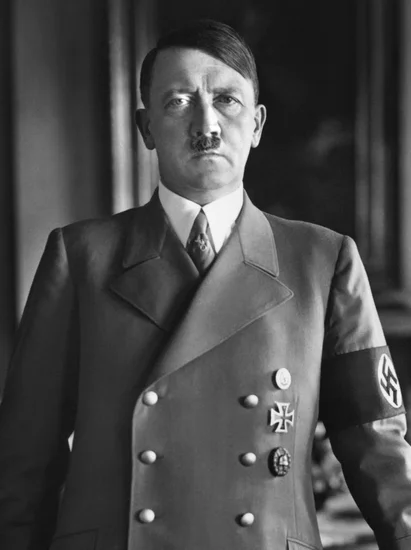
Adolf Hitler’s autobiographical manifesto Mein Kampf was published on this date, outlining his radical political ideology and antisemitic beliefs. The book would later become a cornerstone of Nazi propaganda and indoctrination.
The publication provided a detailed blueprint for Hitler’s future policies and territorial ambitions. Mein Kampf’s availability allowed the world to understand Nazi ideology, though many initially dismissed its extremist content.
2024 – Kyoto Animation Studio Arson Attack
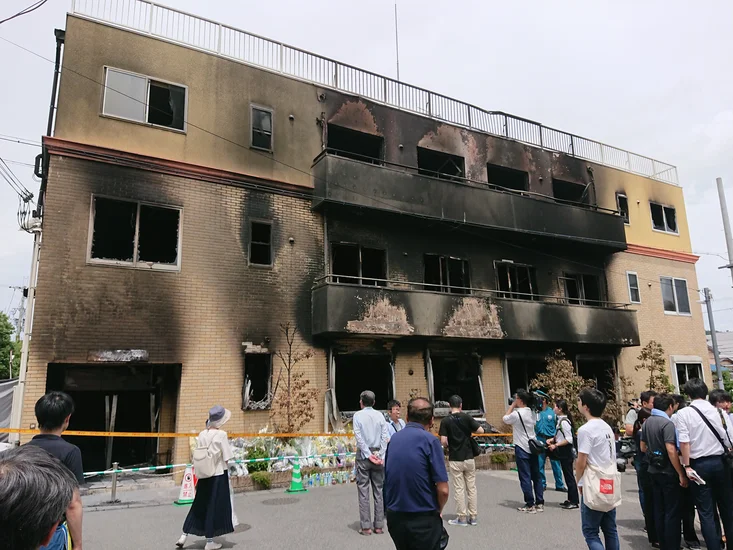
A devastating arson attack at an anime studio in Kyoto, Japan, claimed 36 lives and injured dozens of others. The attack shocked the international animation community and highlighted the global impact of Japanese anime culture.
The tragedy prompted an outpouring of support from anime fans worldwide and raised awareness about workplace safety in creative industries. The incident became one of Japan’s deadliest mass killings in recent history.
Religious and Social Events on July 18
1982 – Plan de Sánchez Massacre in Guatemala
Two hundred sixty-eight Guatemalan campesinos were killed in the Plan de Sánchez massacre during the country’s brutal civil war. This atrocity represented one of the most devastating attacks against indigenous communities during the conflict.
The massacre highlighted the systematic violence directed against Guatemala’s indigenous population. International human rights organizations later documented this event as part of a broader pattern of genocide against Mayan communities.
2014 – ISIL Issues Ultimatum to Christians
The Islamic State of Iraq and the Levant demanded that Christians in their territory either accept dhimmi status, emigrate, or face execution. This ultimatum marked a systematic persecution of religious minorities in ISIL-controlled areas.
The decree sparked international condemnation and highlighted the group’s extremist interpretation of Islamic law. Thousands of Christians were forced to flee their ancestral homes, creating a humanitarian crisis.
1984 – McDonald’s Massacre in San Ysidro
James Oliver Huberty killed 21 people and wounded 19 others at a McDonald’s restaurant in San Ysidro, California, before being fatally shot by police. This mass shooting shocked the nation and prompted discussions about gun violence and mental health.
The tragedy became one of the deadliest shooting incidents in American history at the time. The event highlighted the vulnerability of public spaces and the need for improved emergency response procedures.
Business and Economic Events on July 18
1994 – AMIA Bombing in Buenos Aires

A devastating bomb attack on the Argentine Jewish Community Center in Buenos Aires killed 85 people and injured 300 others. The terrorist attack targeted one of Argentina’s most important Jewish institutions and cultural centers.
The bombing represented the deadliest terrorist attack in Argentine history and sent shockwaves through the international Jewish community. The incident highlighted growing antisemitic terrorism in Latin America during the 1990s.
2002 – Aviation Accident Near Estes Park
A Consolidated PB4Y-2 Privateer crashed near Estes Park, Colorado, killing both crew members aboard the vintage aircraft. The accident highlighted the risks associated with operating historic military aircraft in civilian roles.
The crash involved a World War II-era bomber that had been converted for civilian use. Such accidents underscored the challenges of maintaining aging aircraft and the dangers faced by vintage aviation enthusiasts.
2012 – Burgas Airport Bus Bombing

A bomb exploded on an Israeli tour bus at Burgas Airport in Bulgaria, killing seven people and injuring 32 others. The terrorist attack targeted Israeli tourists and highlighted the persistent security threats faced by Israeli citizens abroad.
The bombing shocked the international community and strained diplomatic relations in the region. Bulgarian authorities launched an extensive investigation with assistance from Israeli and international security agencies.
Transportation and Infrastructure on July 18
1995 – Soufrière Hills Volcano Eruption Begins
The Soufrière Hills volcano on the Caribbean island of Montserrat began erupting, starting a series of explosive events that would devastate the island. The eruption destroyed the capital city and forced most of the population to evacuate.
The volcanic activity continued for several years, fundamentally altering Montserrat’s landscape and economy. The eruption became one of the most significant natural disasters in Caribbean history, displacing thousands of residents permanently.
1996 – Saguenay River Flooding in Quebec

Severe storms triggered catastrophic flooding along the Saguenay River, creating one of Quebec’s most costly natural disasters. The flooding damaged thousands of homes and caused extensive infrastructure destruction throughout the region.
The disaster prompted major improvements in flood management and emergency preparedness across Quebec. The Saguenay floods became a watershed moment for Canadian disaster response and infrastructure planning.
1979 – Indonesian Volcano Tsunami Disaster

A landslide on the Iliwerung volcano in Indonesia triggered a devastating tsunami that killed over 530 people and left 700 missing. The natural disaster demonstrated the deadly combination of volcanic activity and ocean waves.
The tragedy highlighted Indonesia’s vulnerability to multiple natural hazards due to its location along the Pacific Ring of Fire. The disaster prompted improvements in volcanic monitoring and tsunami warning systems throughout the region.
Sports and Recreation on July 18
1976 – Nadia Comăneci Scores Perfect 10
Romanian gymnast Nadia Comăneci achieved the first perfect score of 10 in Olympic Games history during the 1976 Summer Olympics. Her flawless performance on the uneven bars revolutionized gymnastics and captivated audiences worldwide.
Comăneci’s perfect score marked a transformational moment in Olympic gymnastics competition. Her achievement raised the bar for athletic excellence and inspired a new generation of gymnasts to pursue perfection.
1970 – Soviet Air Forces Antonov Crash
An Antonov An-22 aircraft belonging to the Soviet Air Forces crashed into the Atlantic Ocean, killing all 23 people aboard. The accident involved one of the world’s largest aircraft at the time and highlighted aviation safety challenges.
The crash demonstrated the risks associated with operating massive military transport aircraft over long distances. The incident prompted reviews of Soviet aviation safety procedures and aircraft maintenance protocols.
1981 – Mid-Air Collision Near Yerevan
A Canadair CL-44 and Soviet Sukhoi Su-15 collided in mid-air near Yerevan, Armenia, resulting in four fatalities. The collision highlighted the dangers of mixed civilian and military aircraft operations in the same airspace.
The accident occurred during the height of the Cold War and raised questions about air traffic control coordination. The incident prompted discussions about improving aviation safety protocols in international airspace.
Notable Births on July 18
1918 – Nelson Mandela Born
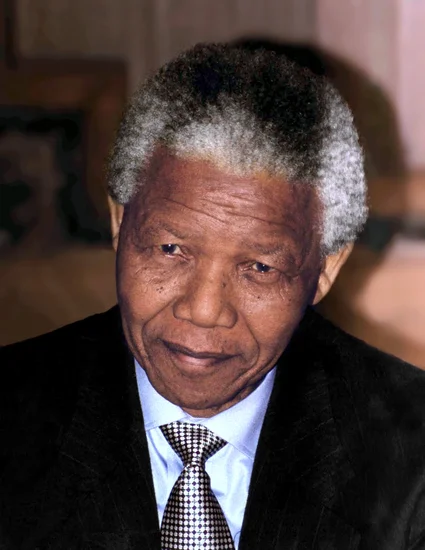
Nelson Mandela was born in South Africa, beginning a life that would transform his nation and inspire the world. His childhood in rural Transkei shaped his understanding of traditional African culture and values.
Mandela would later become South Africa’s first democratically elected president and a global symbol of reconciliation. His birth marked the beginning of one of the most influential political careers in modern history.
1921 – John Glenn Born

American astronaut and politician John Glenn was born in Cambridge, Ohio, launching a career that would take him from military service to space exploration. His early interest in aviation would shape his future achievements.
Glenn would become the first American to orbit Earth and later serve as a United States Senator. His birth began a remarkable journey that embodied American innovation and public service.
1937 – Hunter S. Thompson Born
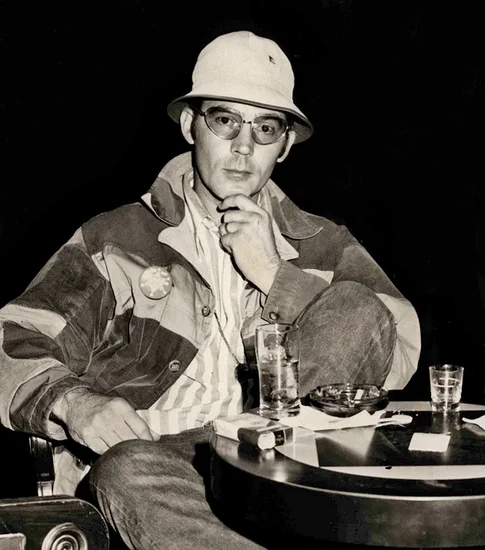
Gonzo journalism pioneer Hunter S. Thompson was born in Louisville, Kentucky, bringing his unique literary voice to the world. His unconventional approach to reporting would revolutionize American journalism and cultural criticism.
Thompson’s birth marked the beginning of a career that would blur the lines between journalism and literature. His fearless reporting style and countercultural perspective would influence generations of writers and journalists.
1950 – Richard Branson Born

British entrepreneur Richard Branson was born in London, beginning a business career that would span multiple industries. His early entrepreneurial spirit would lead to the creation of the Virgin Group empire.
Branson’s birth launched a lifetime of innovation and risk-taking in business ventures. His unconventional approach to entrepreneurship would challenge traditional business models and inspire countless entrepreneurs worldwide.
1982 – Priyanka Chopra Born

Indian actress and global icon Priyanka Chopra was born in Jamshedpur, India, starting a career that would bridge Bollywood and Hollywood. Her early exposure to diverse cultures would shape her international appeal.
Chopra’s birth marked the beginning of a career that would break barriers between Eastern and Western entertainment. Her success would pave the way for greater South Asian representation in global media.
1967 – Vin Diesel Born

American actor and filmmaker Vin Diesel was born in Alameda County, California, beginning a career that would make him one of Hollywood’s biggest action stars. His early interest in theater and film would shape his future success.
Diesel’s birth launched a career that would dominate the action film genre for decades. His distinctive voice and commanding screen presence would make him a global entertainment icon.
Notable Deaths on July 18
1969 – Mary Jo Kopechne Dies

American educator and political aide Mary Jo Kopechne died in a car accident on Chappaquiddick Island, Massachusetts. The tragedy occurred when she was a passenger in a car driven by Senator Ted Kennedy.
Her death became one of the most controversial political scandals in American history. The incident significantly impacted Kennedy’s presidential aspirations and raised questions about political privilege and accountability.
1989 – Rebecca Schaeffer Dies

American actress Rebecca Schaeffer was murdered by an obsessed fan at her Los Angeles home, shocking the entertainment industry. The 21-year-old actress had been stalked for years before her tragic death.
Her murder prompted significant changes in stalking laws and celebrity security protocols. Schaeffer’s death highlighted the dangerous intersection of fame and obsession in American culture.
2009 – Henry Allingham Dies
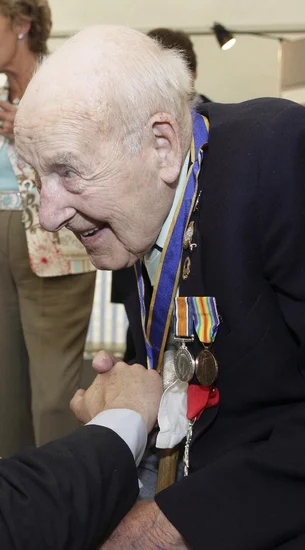
British World War I veteran Henry Allingham died at age 113, having been one of the world’s oldest living men. He served as a mechanic in the Royal Naval Air Service during the Great War.
Allingham’s death marked the end of an era, as he was among the last survivors of World War I. His longevity allowed him to witness more than a century of human history and technological advancement.
2012 – Rajesh Khanna Dies

Indian film actor Rajesh Khanna died in Mumbai, ending the career of Bollywood’s first true superstar. His romantic roles and charismatic screen presence had made him a cultural icon across India.
Khanna’s death marked the end of an era in Indian cinema, as he had helped establish the template for Bollywood leading men. His influence on Indian popular culture extended far beyond his film career.
2024 – Bob Newhart Dies

American comedian and actor Bob Newhart died at age 94, concluding a career that spanned over six decades of entertainment. His distinctive deadpan delivery and stammering style had made him a beloved figure in American comedy.
Newhart’s death marked the loss of one of the last connections to the golden age of American comedy. His influence on stand-up comedy and television sitcoms helped shape modern American humor.
Holidays and Observances on July 18
Nelson Mandela International Day
The United Nations designated July 18 as Nelson Mandela International Day to honor the South African leader’s contributions to peace and freedom. The date commemorates Mandela’s birthday and encourages global acts of service.
The international observance promotes Mandela’s values of democracy, reconciliation, and human dignity. Communities worldwide participate in charitable activities and educational programs celebrating his legacy.
Constitution Day in Uruguay
Uruguay observes Constitution Day on July 18, commemorating the adoption of the nation’s fundamental governing document. The holiday celebrates the establishment of democratic institutions and constitutional governance.
The observance reinforces Uruguay’s commitment to democratic principles and rule of law. Citizens participate in civic ceremonies and educational activities highlighting constitutional rights and responsibilities.
Christian Feast Day of Camillus de Lellis

The Catholic Church observes the feast day of Saint Camillus de Lellis, patron saint of hospitals and the sick. His dedication to caring for the ill and wounded established important precedents for medical care.
The feast day honors Camillus’s contributions to healthcare and his founding of the Camillian religious order. Healthcare workers and medical institutions often hold special observances recognizing his legacy.
